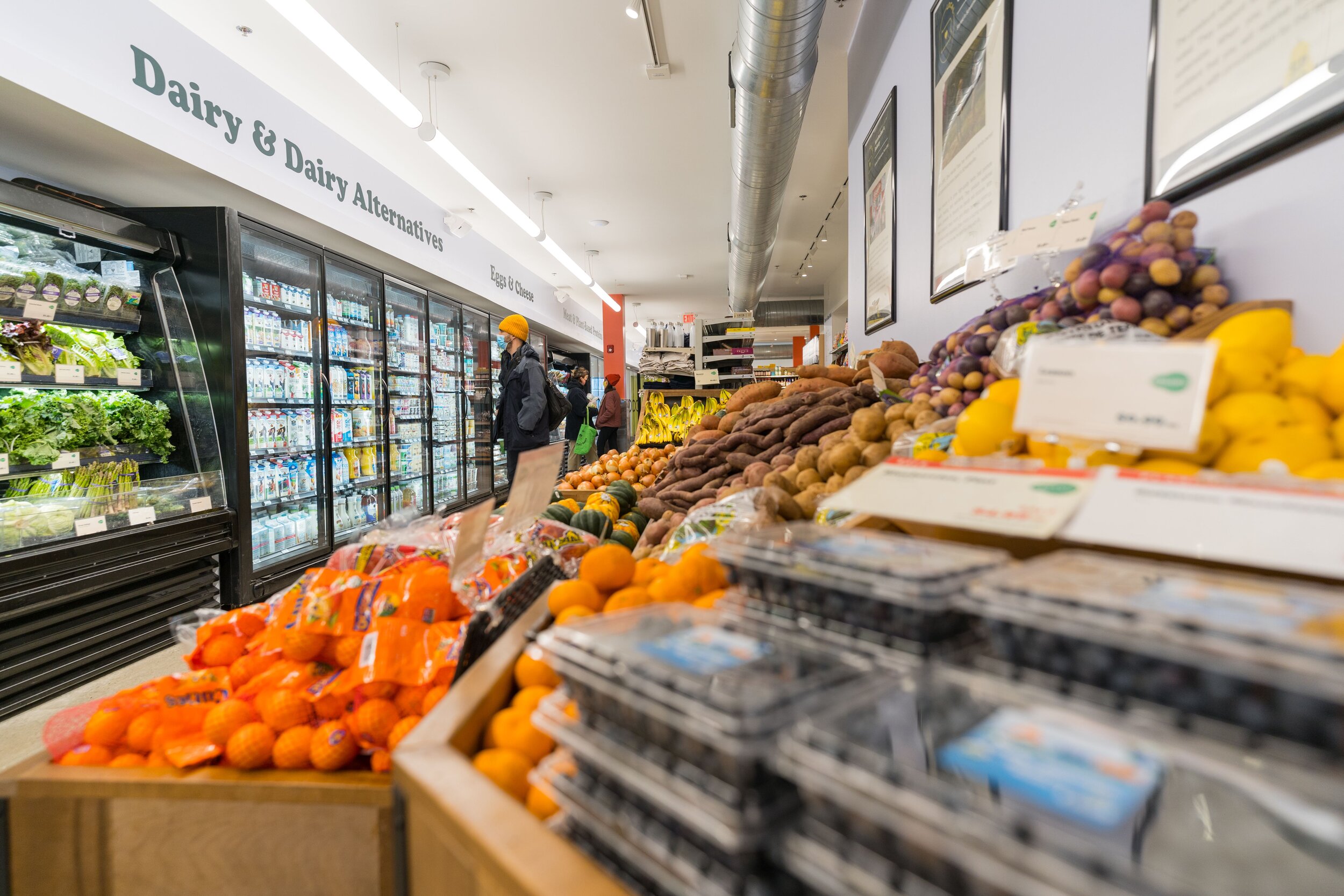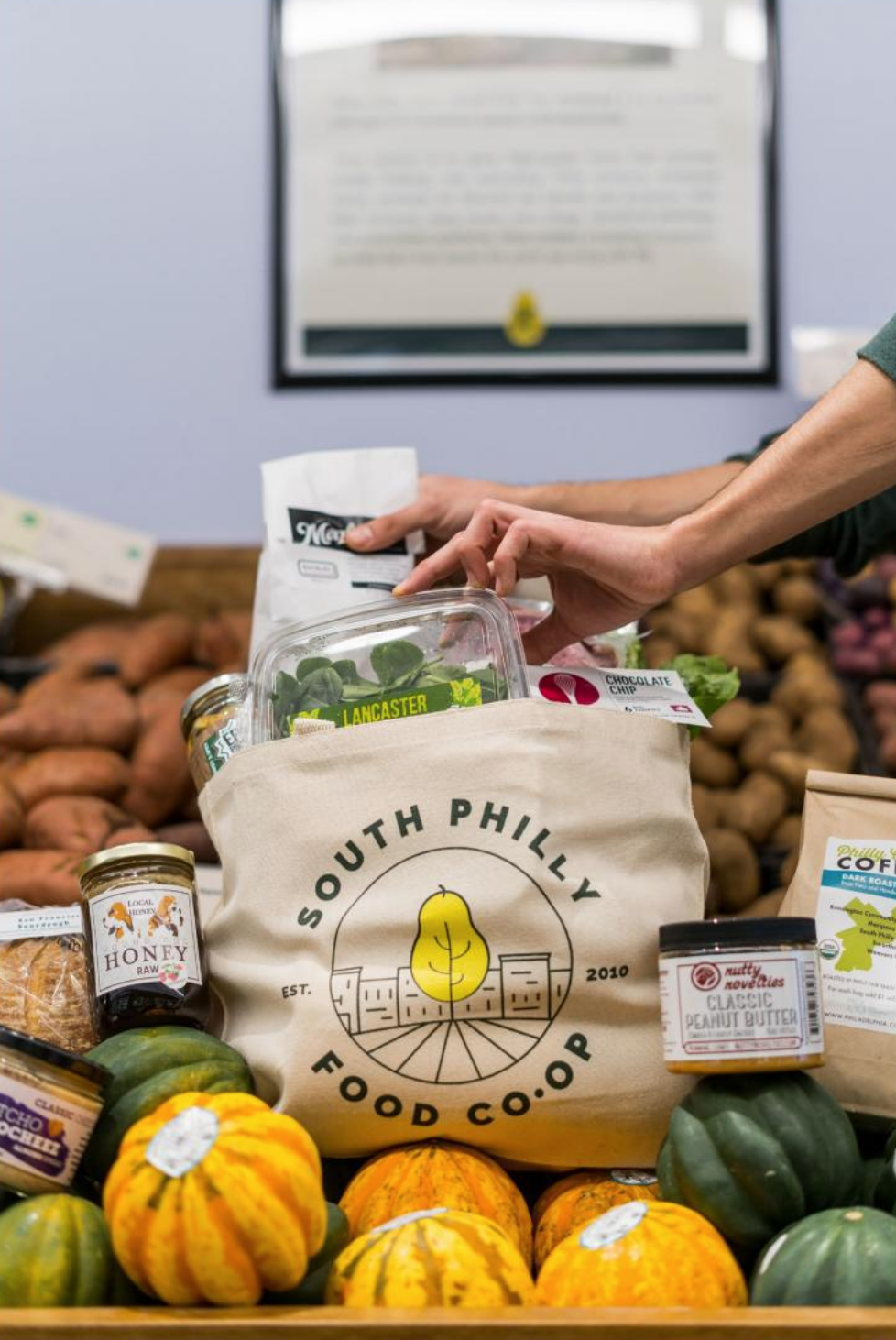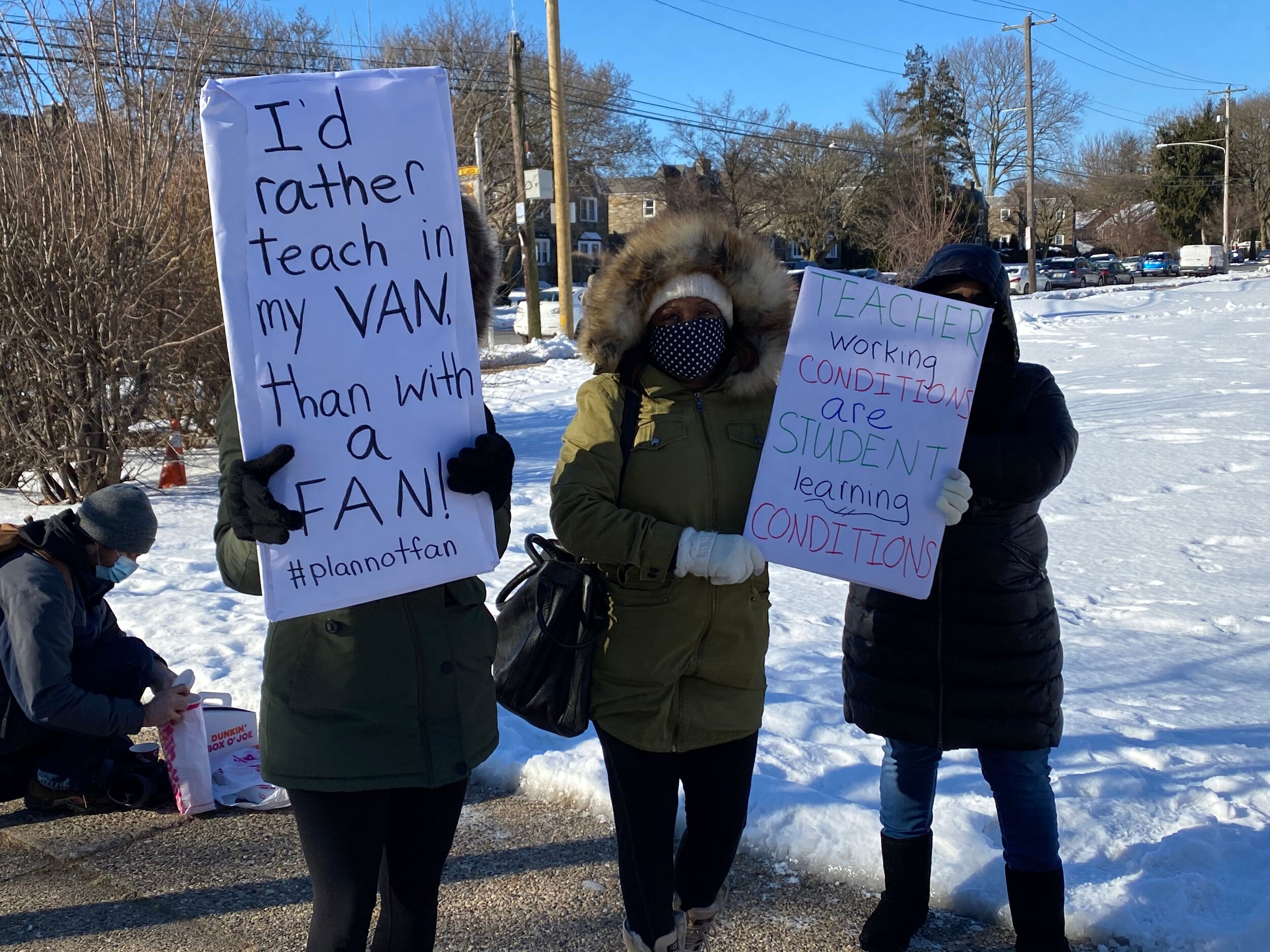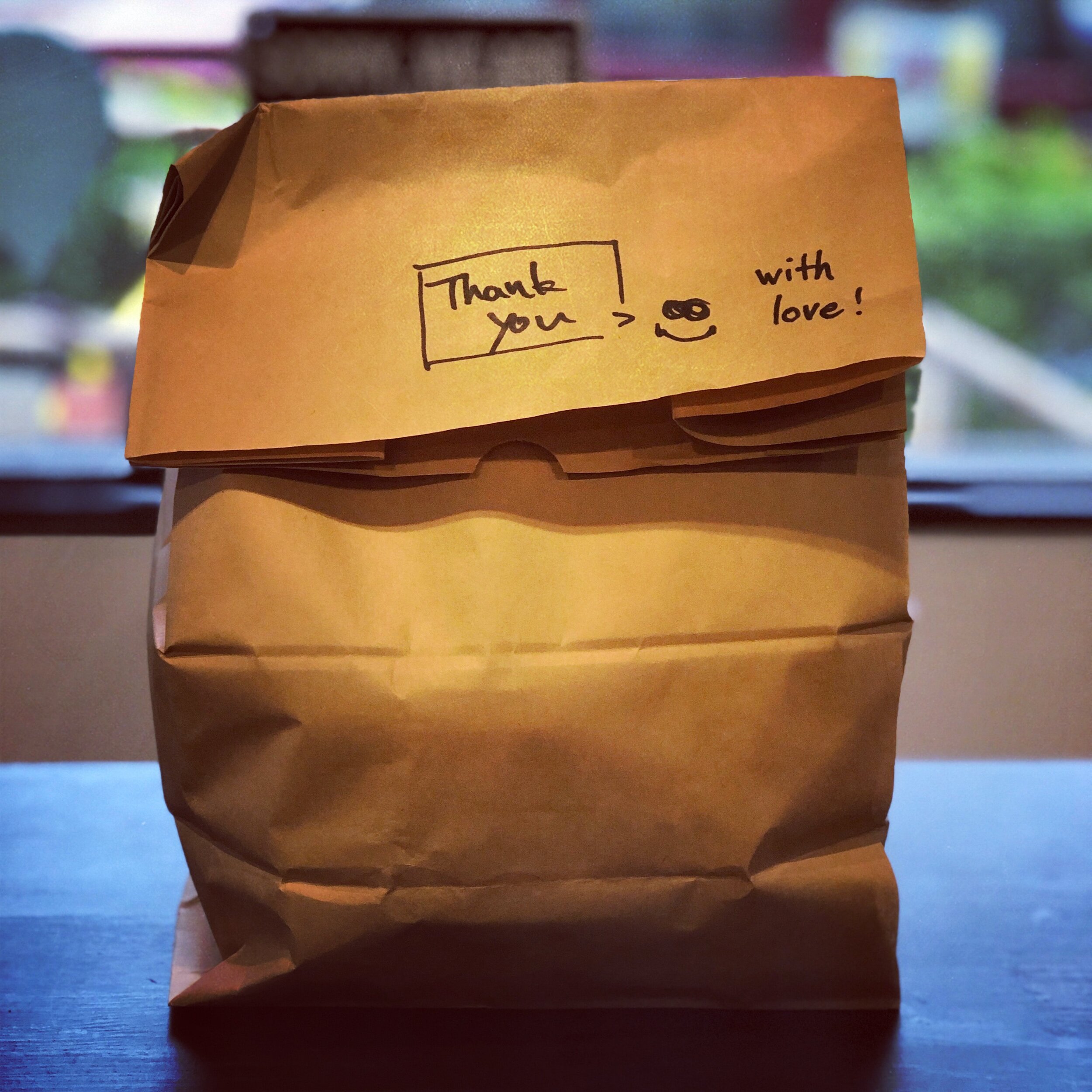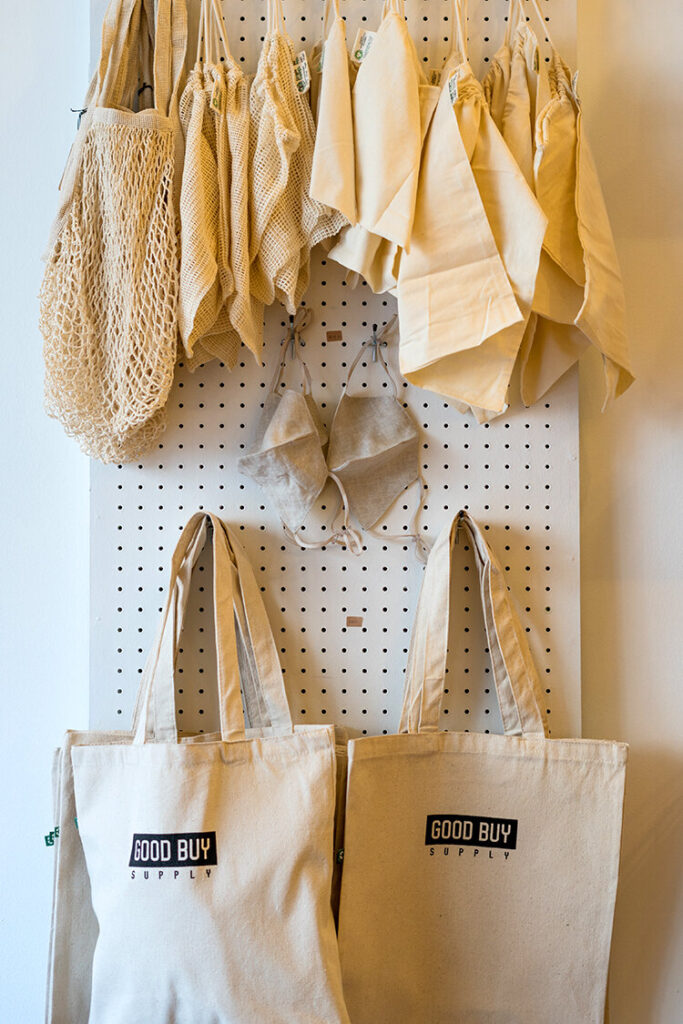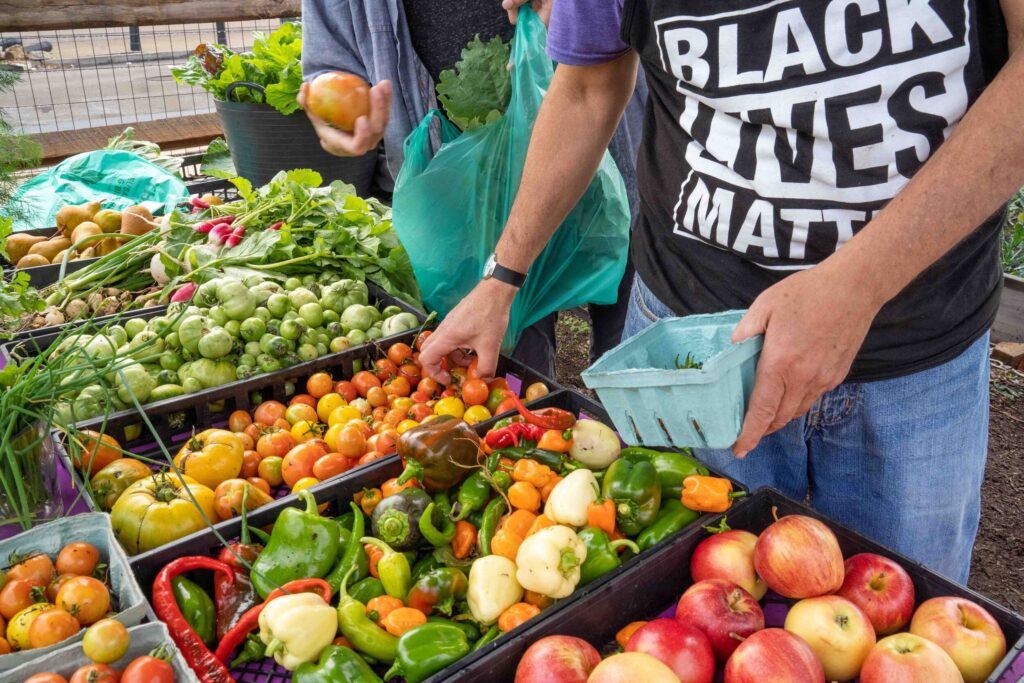A decade in the making, the South Philly Food Co-op (SPFC) has opened its doors.
Leigh Goldenberg, one of the first 100 member-owners at the co-op in 2011, joined before it had even begun searching for store locations.
To Goldenberg, investing in the co-op early on was a commitment to a future vision of a community-owned and democratically run grocery store.
At the time, Mariposa Food Co-op and Weavers Way Co-op, in West and Northwest Philly respectively, were the only grocery co-ops in Philadelphia—both of which first opened in the 1970s and 1980s. (Kensington Community Food Co-op opened in 2019.)
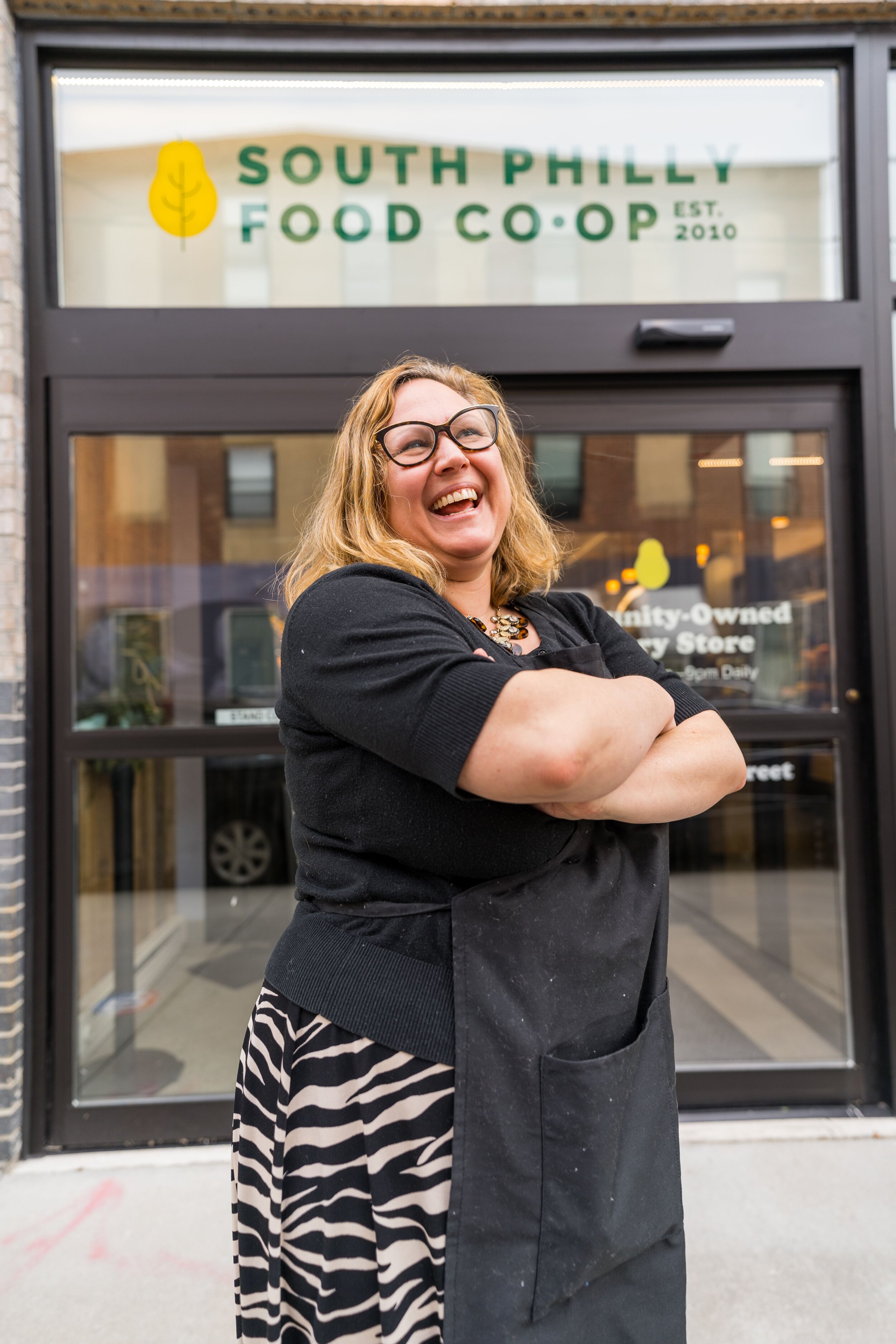
Shortly after becoming a member-owner, Goldenberg began volunteering. Between 2012 and 2014, she chaired the program and events committee, which oversaw recruitment, outreach and fundraising events.
“When I first started volunteering with the co-op and then later joined the board, the structure was very organized. It’s one spot in my life where I’ve been engaged and have seen so many people engaged at the same level,” Goldenberg says.
Through the years, SPFC’s growth has been steady. Conversations with other co-ops helped inform benchmarks the board used to chart growth.
“Based on what we learned from other co-ops, we had milestones. When we got to 500 members, we could start looking for a store,” Goldenberg says. “At first we thought when we had 1,000 members we’d have enough money to open. We actually needed 1,400.”
In the two weeks after SPFC opened its doors, on December 23, the number of member owners had grown to 1,481. Goldenberg expects to see membership rise as more customers visit the store.
Lori Burge, the general manager of SPFC, has worked to make the mission of accessible, affordable food a reality. The co-op already ensures that staple items, such as bread and eggs, are reasonably priced. In addition, local vendors are highlighted. Some Philadelphia companies featured in SPFC include Crust Vegan Bakery, Philly Fair Trade Roasters and Soom Foods.
SPFC strives to source its food products from organic sources, and local and regional businesses whenever possible.
“We’re keeping our profits here in the community.”
— Lori Burge, South Philly Food Co-op general manager
The co-op took multiple surveys to determine what products member-owners most valued in the store. The input from member-owners shaped the focus on local food.
“Supporting local farmers and producers was a big part of what folks wanted to see,” Burge says. “Additionally, access to fresh produce, meat and cheese.”
Member-owners can also purchase bags and shopping accessories decorated by local artists.
To become a member-owner of SPFC, an equity investment of $300 is required. This investment can be paid in full or in monthly installments. If a member-owner cannot afford this, the co-op’s Community Equity Fund can help bridge the gap. Member-owners can give a minimum of $5 when registering and determine how much they can afford to invest over five years. Once the five years have passed, the Community Equity Fund will subsidize the remaining balance.
Goldenberg currently serves as the board treasurer for SPFC. She has helped the co-op weather some financial challenges that were caused by a halt in construction on the store this spring due to COVID-19. The opening was postponed from April to December. Goldenberg and other members of the board had to reassess financial needs and adapt.
“Part of me feels that it was a blessing in some ways that we hadn’t opened prior to the pandemic,” Goldenberg says. “If we were a brand-new business that had certain procedures, we would have had to incur costs afterwards.”
Now that SPFC has opened, the role of its board has shifted. Chad Hooper, the current board president, worked to reimagine the role of the board as the physical store started becoming a reality. SPFC staff have been hired to make decisions previously made by the board.
“My area of expertise in board governance is in helping boards to understand their role as governors—when they are no longer needed to do the work because the store’s staff are responsible now for the store’s success,” Hooper says.
Hooper is working to help the board build connections with the surrounding community and to refocus on the mission of SPFC, which is to “use food as a force for good.” This means providing affordable high-quality food to neighbors, empowering employees, committing to economic justice and supporting farmers.
“When I look ahead, I see the board’s work refocusing on our mission and values. I look forward to building additional community partnerships, particularly around food justice and nutrition education,”
Hooper says.
Member-owners can also reap the benefits of co-op membership when they visit other stores, thanks to the Shop South Philly, a joint marketing program between SPFC and businesses in South Philly and throughout the city. When member-owners show their membership cards or identification numbers at participating businesses, they receive exclusive discounts. Some businesses participating in the program include Flannel, Grindcore House and Bennett Compost.
Through the program, deals for members of Weavers Way, Mariposa and Swarthmore Co-op also apply to SPFC member-owners.
“We’re able to support other businesses, refer people to other businesses and likewise they refer folks to us,” Burge says.
The co-op principle “cooperation among cooperatives” helps guide SPFC’s relationship with other co-ops in the city. For example, Mariposa donated old shelving to SPFC, which Mariposa originally received from Weavers Way.
Elise Greenberg, membership coordinator at Mariposa, values the collaborative spirit of co-ops in the area. “We don’t see each other as competitors. We’re all working towards the same goals. We help each other out as we’re able to,” Greenberg says.
Burge believes that by building community between co-ops and engaging with member-owners SPFC will have an advantage over traditional grocery stores in the city.
“A lot of our community really believes in the co-op model. That we’re democratically owned and controlled and that they have a stake in this business. We’re keeping our profits here in the community,” Burge says.


